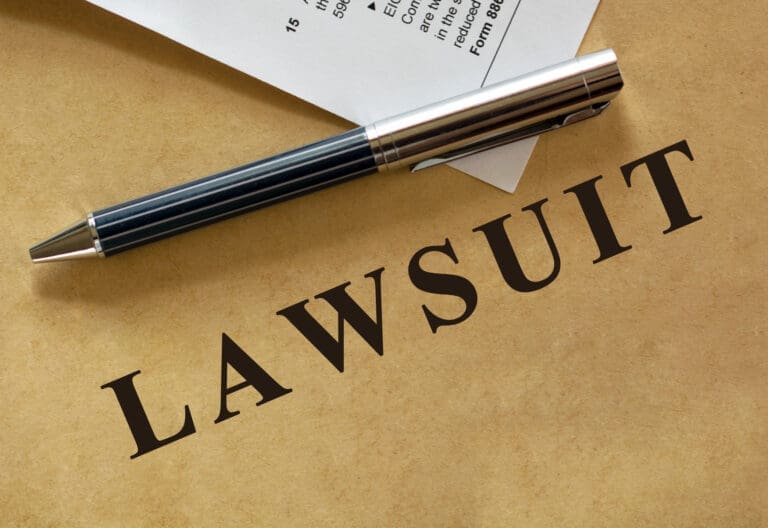
It’s crucial for every employee to know their derechos and understand the normativa that govern their workplace. This article will probe into the intricacies of labor law, shedding light on the protections and limitations in place to safeguard workers. By gaining a comprehensive understanding of worker rights y normativa, individuals can advocate for themselves effectively in the workplace. Stay informed to ensure a fair and safe working environment.
Types of Labor Laws
A understand labor laws, it is necessary to recognize the different types that govern the relationship between employers and employees. These laws encompass a wide range of regulations that protect workers’ rights and ensure fair treatment in the workplace. Here are some key categories of labor laws:
| 1. Employment Discrimination Laws | 2. Legislación sobre salarios y horarios |
| 3. Occupational Health and Safety Laws | 4. Family and Medical Leave Laws |
| 5. Labor Relations Laws |
- Employment Discrimination Laws protect workers from discrimination based on race, gender, age, disability, etc.
- Wage and Hour Laws regulate minimum wage, overtime payy break periods.
- Occupational Health and Safety Laws ensure safe working conditions for employees.
- Family and Medical Leave Laws provide employees with job-protected leave for certain family or medical reasons.
- Labor Relations Laws govern the relationship between employers y labor unions.
Federal Labor Laws
Labor laws at the federal level are established by various acts such as the Fair Labor Standards Act (FLSA), Occupational Safety and Health Act (OSHA), and the Family and Medical Leave Act (FMLA). These laws set minimum standards for wages, working conditions, safetyy leave benefits that apply to most workplaces across the country.
State Labor Laws
State labor laws complement federal laws by addressing specific issues relevant to each state. While federal laws set baseline standards, states can introduce additional protections for workers. It’s important to note that in cases where state and federal laws differ, the law offering greater protection to employees is applied.
Recognizing the distinctions between federal and state labor laws is crucial for both employers and employees to ensure compliance and uphold workers’ rights.
Worker Rights
Right to Fair Compensation
The right to fair compensation ensures that workers are paid reasonably for their work. Employers must adhere to minimum wage laws and pay overtime for hours worked beyond the standard workweek. This right also includes benefits such as health insurance, vacation time, and retirement plans. Ensuring fair compensation is crucial for maintaining a motivated and productive workforce.
Right to Safe Working Conditions
Worker safety is paramount in any workplace. Employers are required to provide a safe and healthy work environment free from hazards that could cause harm to employees. This includes implementing safety protocols, providing training on proper procedures, and maintaining equipment in good working condition. Workers have the right to refuse work that they believe is unsafe without fear of retaliation.
Understanding the right to safe working conditions is vital for both employers and employees. Failure to provide a safe work environment can result in serious injuries, lawsuits, and damage to the company’s reputation. By prioritizing worker safety, businesses can create a positive and productive work environment where employees feel valued and protected.
Overall, respecting and upholding worker rights not only ensures compliance with labor laws but also fosters a healthy and prosperous work environment for everyone involved.
Employer Regulations
Overtime and Leave Policies
For many workers, understanding their rights regarding overtime pay and leave policies is crucial. Employers are required to adhere to specific regulations set by labor laws to ensure fair treatment of employees in these areas.
Workplace Safety Standards
Any reputable employer must prioritize workplace safety standards to protect their employees from harm or injury. This includes providing a safe working environment, proper training, and safety equipment to mitigate risks.
En Occupational Safety and Health Administration (OSHA) sets forth guidelines and regulations that employers must follow to maintain a safe workplace. Employers are mandated to provide a hazard-free environment for their workers, conduct regular safety training, and keep records of any workplace injuries.
Conclusión
So, understanding worker rights and regulations in labor law is crucial for both employees and employers to navigate the workforce successfully. By being informed about these laws, individuals can ensure fair treatment, safe working conditions, and proper compensation in the workplace.
PREGUNTAS FRECUENTES
Q: What are the basic rights of workers in terms of labor law?
A: Workers have a right to a safe workplace, fair wages, equal opportunities, and protection from discrimination and harassment. These rights are protected under various labor laws to ensure fair treatment and working conditions for all employees.
Q: How does labor law protect workers from exploitation?
A: Labor laws establish minimum wage standards, overtime pay, limits on working hours, and regulations for safe working conditions. These laws also prohibit child labor, ensure equal pay for equal work, and protect employees’ rights to organize and bargain collectively.
Q: What should workers do if they feel their rights have been violated under labor law?
A: If workers believe their rights have been violated, they can file a complaint with the relevant government agency, such as the Department of Labor. They may also seek legal assistance to understand their rights and options for recourse, including mediation, arbitration, or filing a lawsuit.
Type of Attorney and How to Find Them on Attorneys.Media
For legal issues related to labor law and understanding worker rights and regulations, it is essential to consult with an employment law attorney. These attorneys specialize in labor and employment law and are skilled in navigating the complex legal landscape that governs workplace rights and protections. They can provide expert advice on your legal rights as an employee, help you understand the regulations that apply to your situation, and represent you in disputes with your employer.
To find a qualified employment law attorney, you can use the directory available on Attorneys.Media. Start by visiting the website and exploring the “Employment Law” or “Labor Employment Pension” categories. These sections feature profiles of attorneys who specialize in labor and employment issues. Each profile provides comprehensive information about the attorney’s background, areas of expertise, and contact details, allowing you to choose the best legal professional for your needs.
When selecting an employment law attorney, consider their experience in handling cases similar to yours. Look for attorneys with a proven track record of successfully representing employees in disputes over worker rights, discrimination, wage and hour issues, and other employment-related matters. Reading reviews and testimonials from previous clients can offer valuable insights into the attorney’s effectiveness and dedication to their clients. By leveraging the resources on Abogados.Media, you can find a knowledgeable and experienced employment law attorney who will advocate for your rights and help you navigate the complexities of labor law.
Attorneys.Media Video Document References
- Is Personal Injury Part of Your Law Practice?
- As an Attorney, How Are You Generating Content for Your Online Presence?
- How Can You Help Potential New Clients Get Their Questions Answered?
- How Do You Differentiate Yourself When Someone Looks Online for Help?
- How Do You Differentiate Yourself as a Criminal Defense Attorney?
- Have You Been Thinking About Video Marketing for Your Law Firm?
- Should Attorneys Use Video Marketing to Attract New Clients?
- What Do Potential Clients See When They Research Your Name Online?
- Cómo puede ayudarle Attorneys.Media






